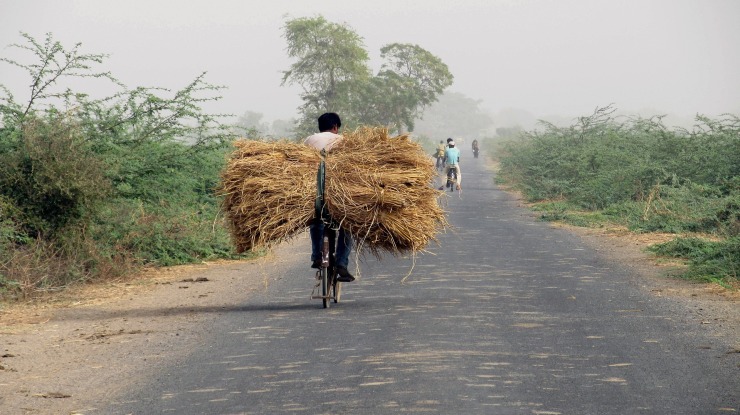
Chhattisgarh Chief Minister Vishnu Deo Sai announced on May 4, 2025 that his government will introduce a new, more stringent law to prevent illegal religious conversions in the state, with a particular focus on tribal communities.
“There is an existing law in Chhattisgarh against illegal religious conversion. There is a need to strengthen it further,” Sai said during an interview with PTI. “We are examining what kind of law is there in other states. In the coming time, we will definitely introduce a strict law so that religious conversion can be stopped.”
In addition to the tougher law, Sai advocated for “delisting” tribals who convert to other religions - effectively removing them from the Scheduled Tribe (ST) category, which would strip them of associated government benefits and protections.
“If a tribal converts to another religion, they continue to get the benefits given to the ST community and even those given to minorities,” Sai explained, contrasting this with the situation for Scheduled Castes. “There is a provision in the Constitution that if the people of Scheduled Caste convert to other religion, then they are deprived of the benefits given under the category concerned.”
According to Sai, implementing similar restrictions for converted tribals would help curb religious conversions. “It will stop with delisting,” he asserted.
The Chief Minister emphasized that while India is a secular country where people are free to follow their chosen faith, he objects to what he describes as conversions through inducement.
“There is no problem in accepting any religion according to one’s own faith and belief. But some people have been converting people, particularly the poor, by luring and misleading them on the pretext of providing education and other facilities. I think it is wrong and should not happen,” Sai stated.
The proposal aligns with demands from tribal communities in Bastar and Surguja regions, who have been calling for the delisting of tribals who convert to Christianity or other religions. Sai claimed that tribal societies have been consistently advocating for this change by organizing meetings and gathering signatures.
“The demand (of delisting) is being continuously raised by the tribal society,” he said, adding that the issue has historical precedent. “Kartik Oraon ji, who was an MP from Congress from Bihar, had said in the Parliament that converted tribals should not be entitled to benefits given under ST category. As per my knowledge, more than 250 MPs had submitted applications in the Parliament in this regard on behalf of the tribal society.”
Recent Developments in the Assembly
The push for stronger anti-conversion measures was echoed in the ongoing Chhattisgarh Assembly session on March 18, 2025, when Home Minister Vijay Sharma announced that the government would “soon bring a stringent law to deal with illegal conversions in the state.”
Sharma’s statement came in response to allegations by BJP MLA Ajay Chandrakar that “changai sabhas” (faith healing meetings) were being held in the state to “lure innocent, helpless and poor people with various kinds of temptations to mislead and convert them.”
Chandrakar further claimed that NGOs established for health, education, and social work were receiving foreign funds and using them for conversion activities. According to him, nine out of 19 registered institutions in Bastar district and 15 out of 18 institutions in Jashpur district - the Chief Minister’s home district - are operated by Christian missionaries.
Home Minister Sharma provided statistics on conversion-related cases, stating that legal action had been taken by registering zero cases in 2019, one in 2020, seven in 2021, three in 2022, zero in 2023, twelve in 2024, and four so far in 2025.
Speaking to the media after the assembly session, Sharma emphasized, “Now action is being taken against illegal conversions. We will soon bring a stringent law to ensure illegal conversions do not take place. If we receive any complaints that audits of these NGOs are not done properly, then we will act on it.”
While Chhattisgarh already penalizes forced conversions under the Chhattisgarh Freedom of Religion Act, 1968, the BJP-led government has reportedly been working on a new and more stringent anti-conversion law since last year, though it has yet to be tabled in the Assembly.
Context and Concerns
Chhattisgarh has had anti-conversion legislation since it was carved out of Madhya Pradesh in 2000. It adopted the existing Madhya Pradesh anti-conversion law under the title “Chhattisgarh Freedom of Religion Act, 1968.” The BJP-led state government has repeatedly attempted to amend the law to make it more stringent.
Critics have raised concerns about anti-conversion laws potentially being misused to target religious minorities. In Uttar Pradesh, where one of India’s strictest anti-conversion laws is in force, investigations have found numerous cases of questionable enforcement. An Article 14 study of 101 FIRs filed under UP’s anti-conversion law found that more than half had no legal standing and should never have been registered, with most filed by third parties rather than alleged victims.
“We urge caution regarding the proposed legislation,” said Rev. Vijayesh Lal, General Secretary of the Evangelical Fellowship of India to Christian Today. “Our documentation shows Chhattisgarh already ranks second nationally in incidents against Christians. Similar laws in other states have often led to misuse rather than protecting genuine religious freedom.”
The Religious Liberty Commission of the Evangelical Fellowship of India (EFI) documented that Chhattisgarh witnessed 150 incidents targeting Christians in 2024, including physical assaults on worshippers, social ostracism, economic boycotts, and coerced participation in Hindu rituals. In several instances, Christians reportedly faced ultimatums to either renounce their faith or leave their villages.
Christians make up less than 2 percent of Chhattisgarh’s 30 million people, while tribal communities account for approximately 30 percent of the state’s population. Religious freedom advocates argue that anti-conversion laws often encroach on constitutional rights to freely practice and profess religion.




